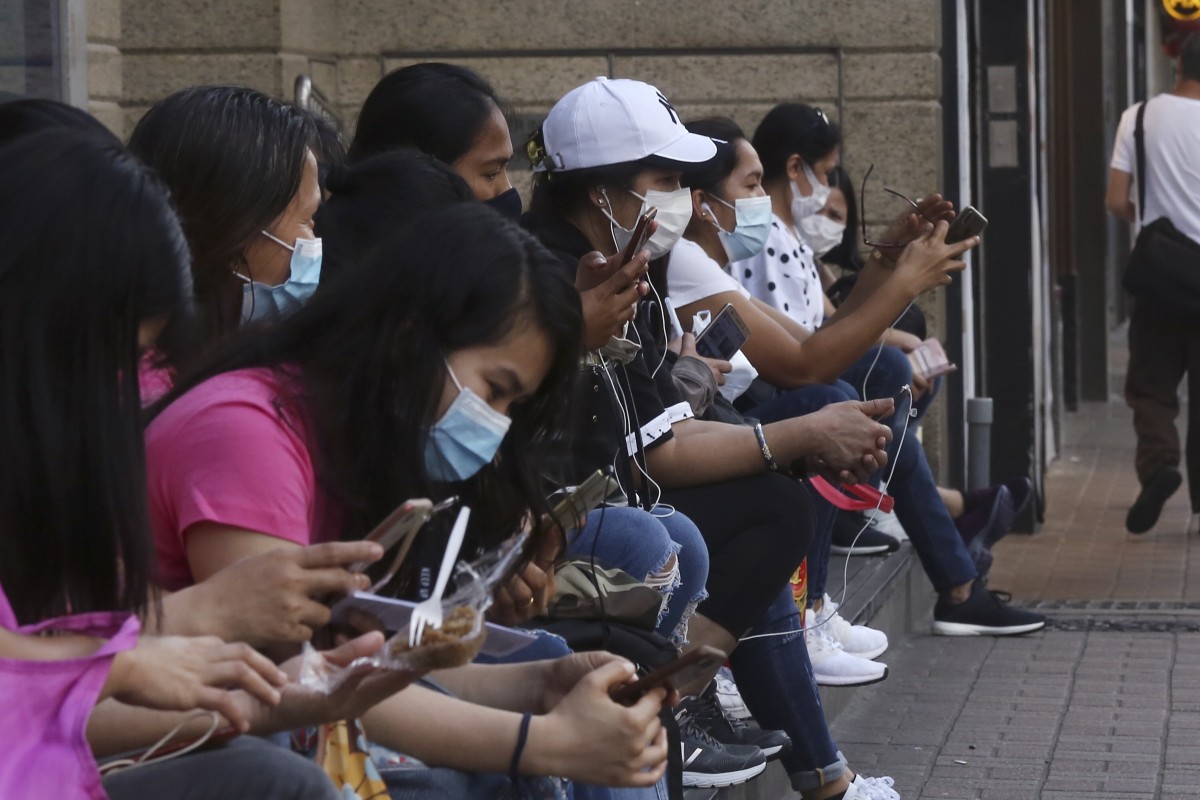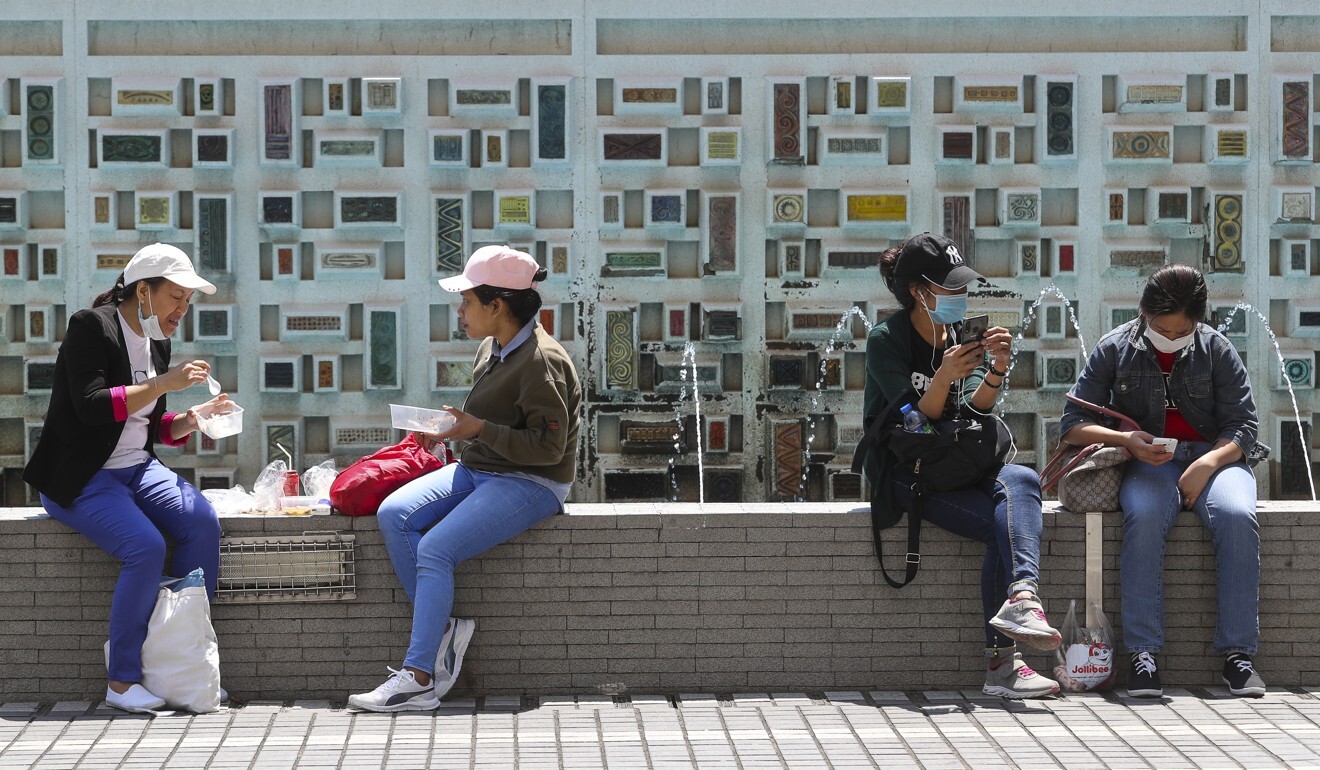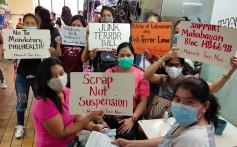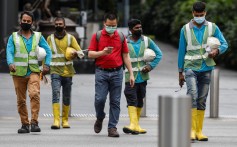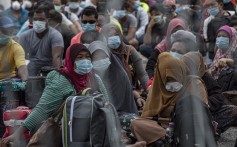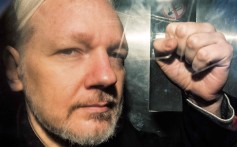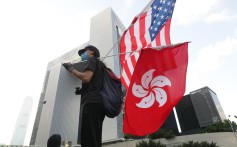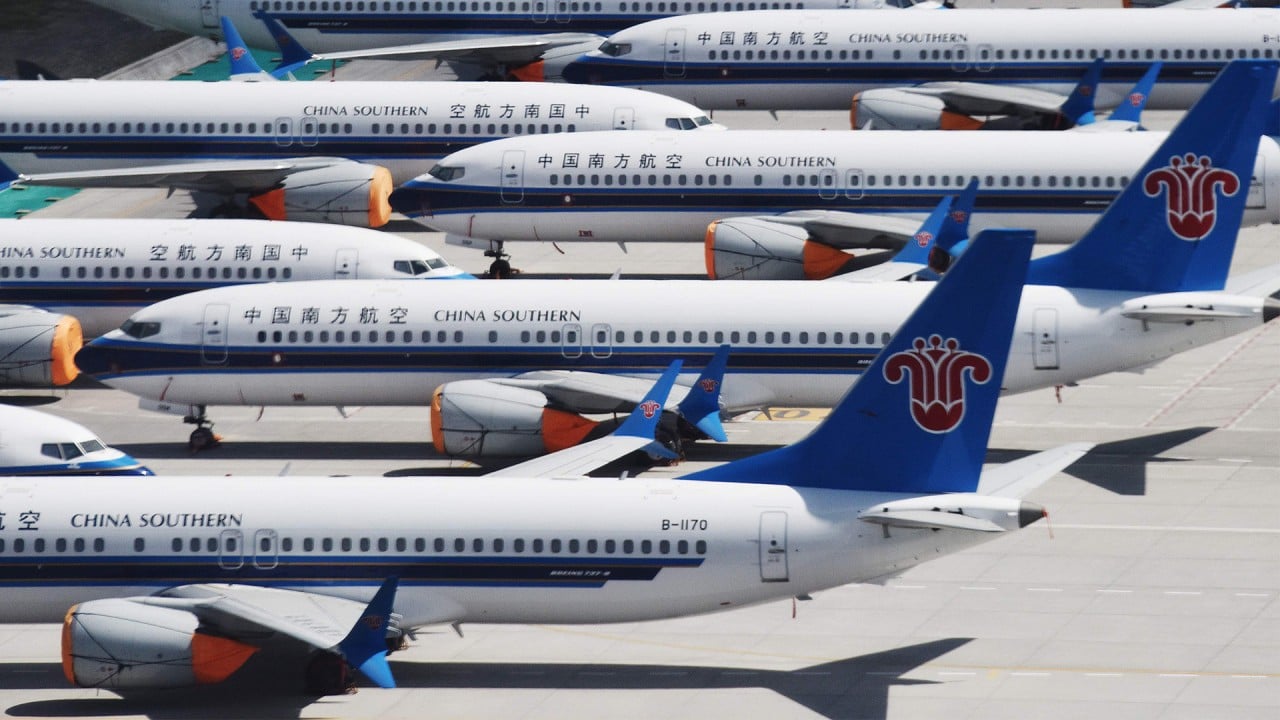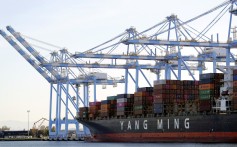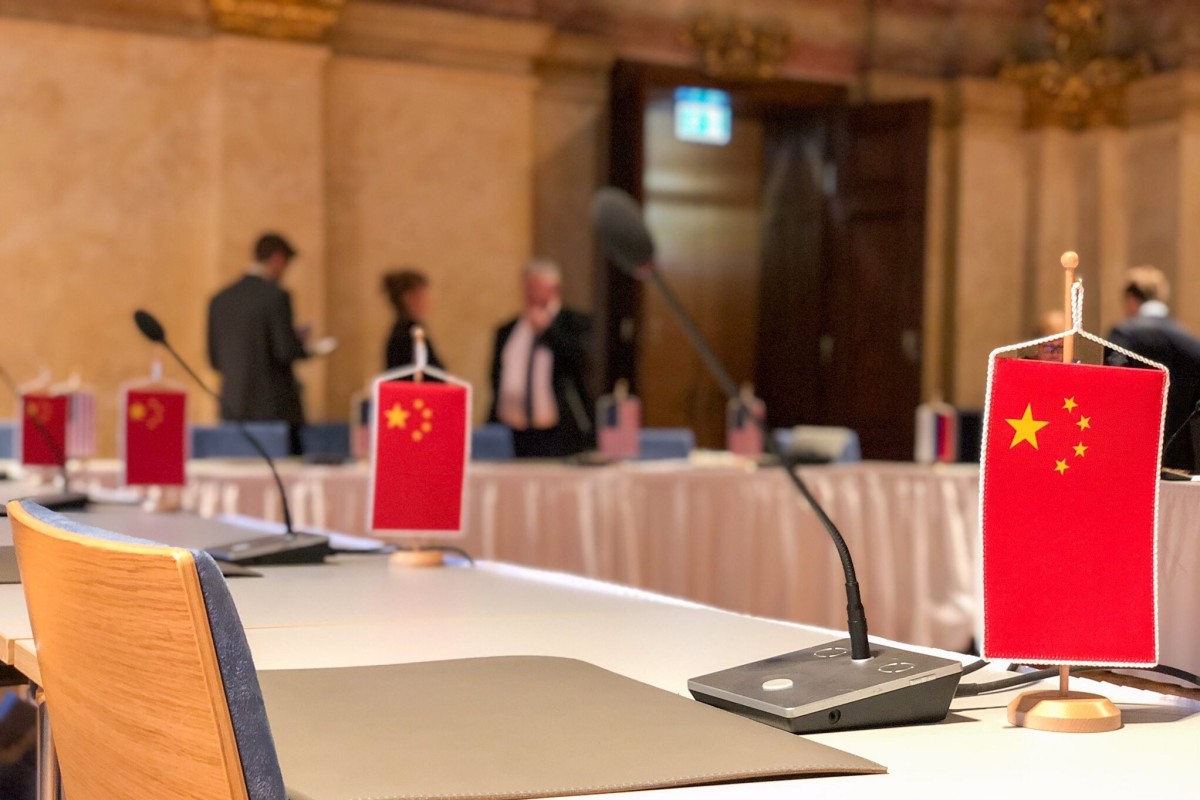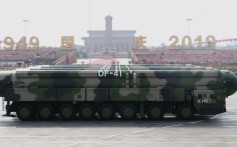The 2009 police killing of a Nepalese man shocked Hong Kong’s ethnic minorities, who have long complained of racial profiling
An inquiry into institutional racism is long overdue. The government must start to remedy any racial injustices in the community
Justin Bong-Kwan Published: 25 Jun, 2020
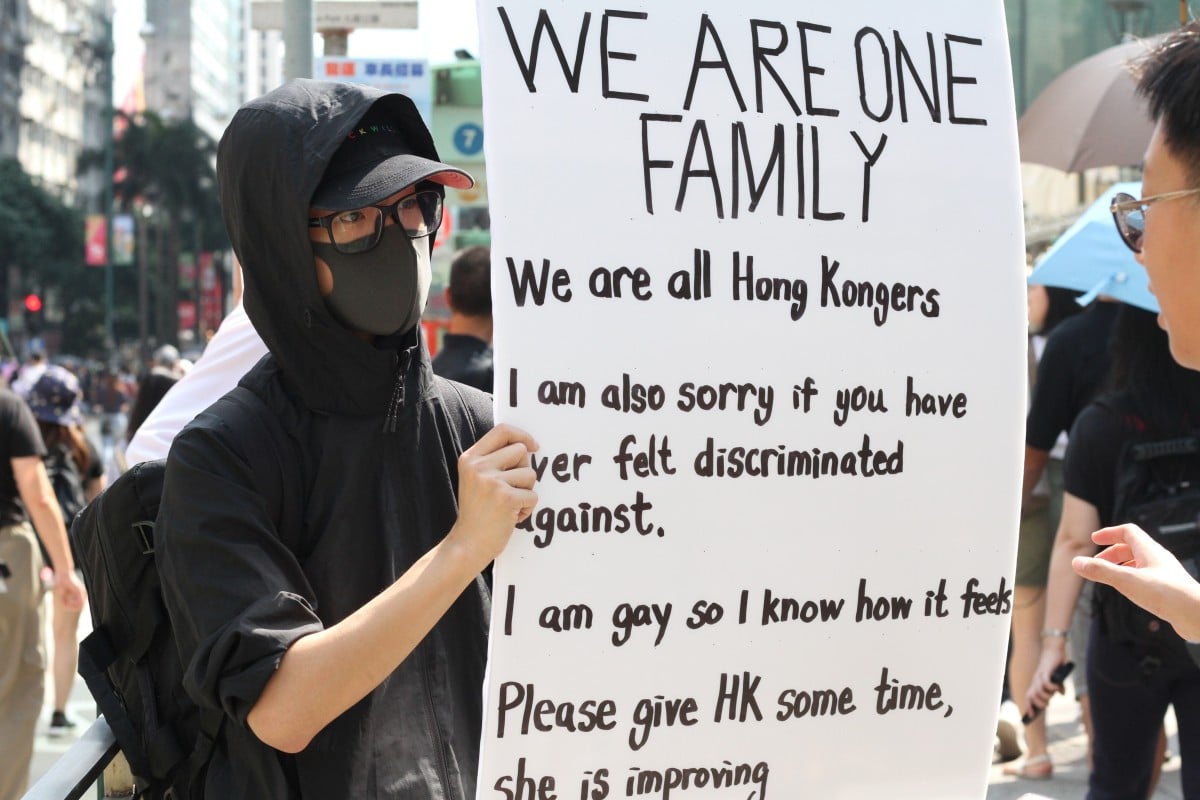
A protester stands in front of Hong Kong’s largest mosque, Kowloon Mosque, and holds a banner to show support for ethnic minorities last October, after a police cannon sprayed blue dye on the mosque and people outside. Photo: Raquel Carvalho
On June 7, demonstrators marched to the US Consulate in Hong Kong in solidarity with the Black Lives Matter movement. The movement is a protest over police brutality against African Americans and was sparked by the recent death of George Floyd.
While some may perceive the movement as a response to an American problem, racial inequality is not unique to any particular part of the world. Having said that, Australian Prime Minister Scott Morrison stirred up controversy when he remarked that “There's no need to import things happening in other countries here to Australia,” since “Australia is not the United States”.
In these circumstances, is it possible that Hong Kong has its own systemic injustices to address? In particular, do the city’s ethnic minorities experience racial discrimination from the police?
Racial inequality is a multifaceted issue, and its operation and impact are largely contextual. It follows that an effective anti-discrimination strategy requires gaining a thorough understanding of how racial inequality affects the target community. Otherwise, attempts at tackling potential problems would be mere shots in the dark.
There must be more than a peripheral survey of the treatment of ethnic minorities in policing. For instance, the 1999 Macpherson Report in Britain was commissioned to inquire into matters arising from how the murder of black teenager Stephen Lawrence was handled. It concluded that institutional racism extended beyond the police service, and that such collective failure was apparent in Britain’s criminal justice system.
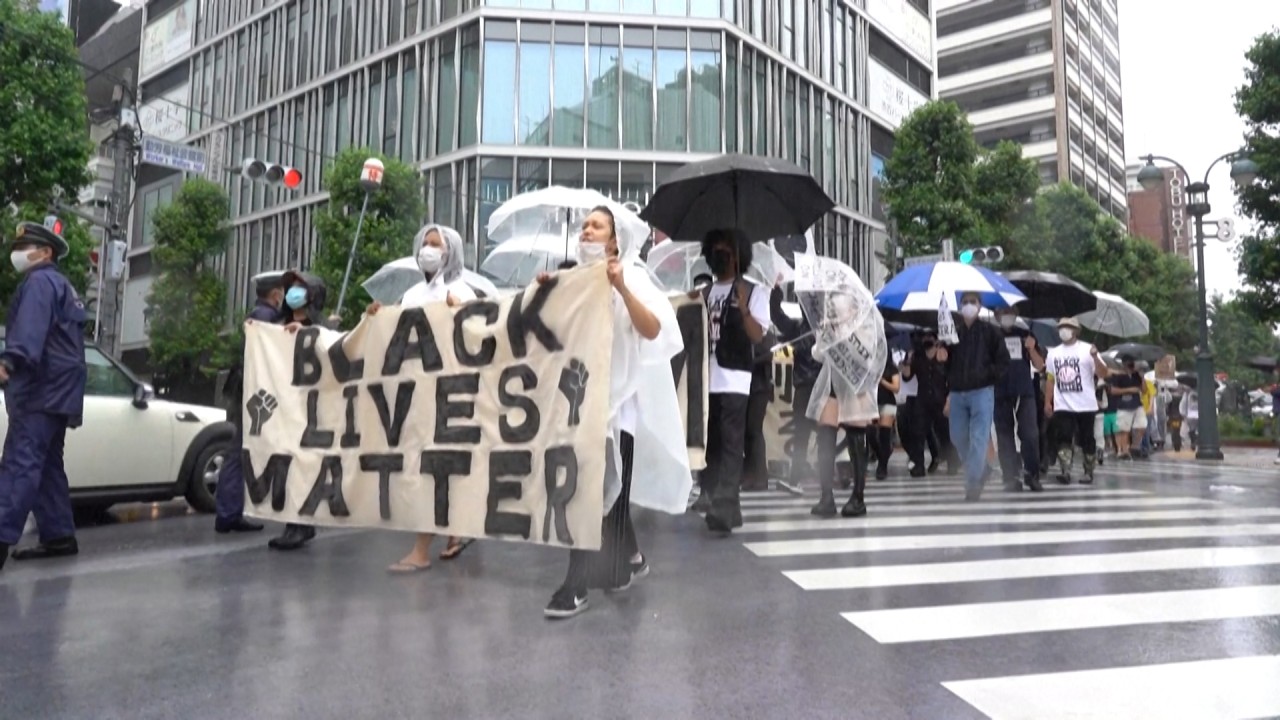
Black Lives Matter protests held across Asia
Inquiries such as the Macpherson Report are vital in identifying discriminatory practices that may exist. Unfortunately, there has not been a similar undertaking in the context of Hong Kong.
The lack of relevant data on the city’s police practices in this regard was made apparent in the case of Singh Arjun vs Secretary for Justice, in which a locally born Punjabi boy alleged that he was subject to racial discrimination by the police. Referring to the Macpherson Report, the court observed that: “Corresponding studies have not been conducted of the Hong Kong Police.”
Racial inequality is a multifaceted issue, and its operation and impact are largely contextual. It follows that an effective anti-discrimination strategy requires gaining a thorough understanding of how racial inequality affects the target community. Otherwise, attempts at tackling potential problems would be mere shots in the dark.
There must be more than a peripheral survey of the treatment of ethnic minorities in policing. For instance, the 1999 Macpherson Report in Britain was commissioned to inquire into matters arising from how the murder of black teenager Stephen Lawrence was handled. It concluded that institutional racism extended beyond the police service, and that such collective failure was apparent in Britain’s criminal justice system.

Black Lives Matter protests held across Asia
Inquiries such as the Macpherson Report are vital in identifying discriminatory practices that may exist. Unfortunately, there has not been a similar undertaking in the context of Hong Kong.
The lack of relevant data on the city’s police practices in this regard was made apparent in the case of Singh Arjun vs Secretary for Justice, in which a locally born Punjabi boy alleged that he was subject to racial discrimination by the police. Referring to the Macpherson Report, the court observed that: “Corresponding studies have not been conducted of the Hong Kong Police.”
In 2010, the Constitutional and Mainland Affairs Bureau issued the
Administrative Guidelines on Promotion of Racial Equality as general guidance for public authorities – including the police force – to implement measures promoting racial equality. Nevertheless, an information gap between public policy and practice persists.
Administrative Guidelines on Promotion of Racial Equality as general guidance for public authorities – including the police force – to implement measures promoting racial equality. Nevertheless, an information gap between public policy and practice persists.
The presence of this lacuna is vexing, to say the least.
Covid-19 shows up Hong Kong’s insensitivity to ethnic minorities
31 May 2020
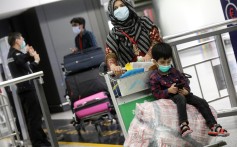
Ethnic minorities in Hong Kong have complained of racial profiling by the police. In 2009, Nepalese man Limbu Dil Bahadur was fatally shot by a police officer purportedly acting in self-defence.
The incident caused widespread concern among the city’s ethnic minority communities over police treatment of ethnic minorities. In a letter to then police commissioner
Tang King-shing, a group of ethnic minority residents said they were “feeling less and less secure” following the incident.
A coroner’s inquest into Limbu’s death delivered a verdict of lawful killing. In the subsequent judicial review application, the Court of First Instance noted: “The jury’s conclusion of lawful killing without any recommendation implies that the jury did not believe that any systemic defect in [the police officer]’s training had led to Limbu’s death.”
In the absence of a comprehensive review of other police practices, it is questionable whether the same belief can be safely held for all police practices.
The incident caused widespread concern among the city’s ethnic minority communities over police treatment of ethnic minorities. In a letter to then police commissioner
Tang King-shing, a group of ethnic minority residents said they were “feeling less and less secure” following the incident.
A coroner’s inquest into Limbu’s death delivered a verdict of lawful killing. In the subsequent judicial review application, the Court of First Instance noted: “The jury’s conclusion of lawful killing without any recommendation implies that the jury did not believe that any systemic defect in [the police officer]’s training had led to Limbu’s death.”
In the absence of a comprehensive review of other police practices, it is questionable whether the same belief can be safely held for all police practices.
Nevertheless, the reality is that a segment of Hong Kong society feels unsafe – is this not a cause célèbre to look into the matter? In the event that inequality is being perpetuated by the public authorities, the government has a responsibility to identify such injustices and remedy them promptly. It is important that the government recognises that it has this role.
Indeed, the potential for social progress is arguably limited unless there is a resolve to effect change. German Chancellor Angela Merkel pointed out: “Racism has always been present, but sadly [Germany] also [has] this [problem]. We should first sweep in front of our own door.”
Similarly, the Black Lives Matter movement should be a wake-up call for the Hong Kong government to be more proactive in investigating and addressing the city’s racial inequalities.

Justin Bong-Kwan is a practising barrister based in Hong Kong and a freelance writer.
Ethnic minorities in Hong Kong
